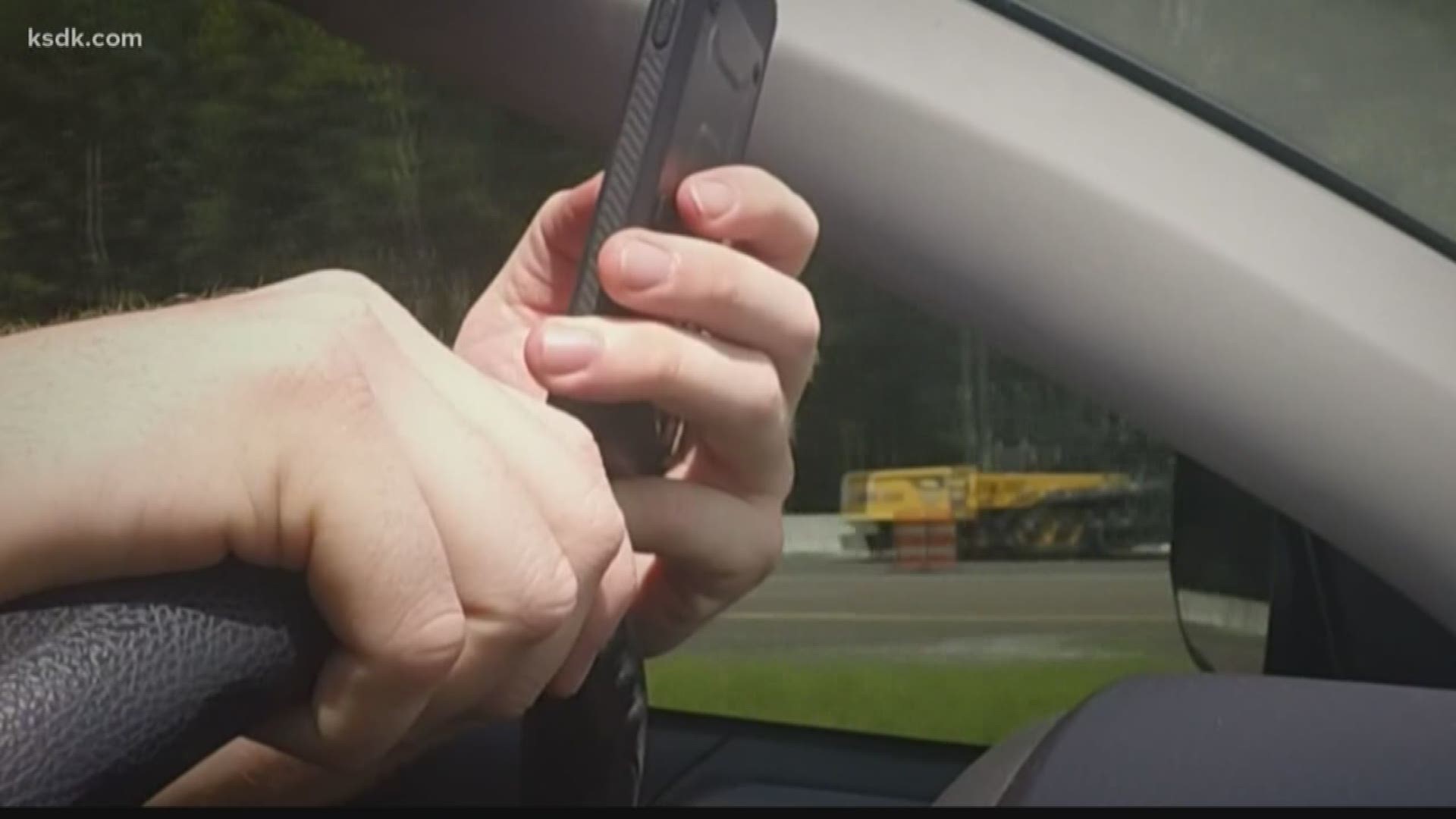ST. LOUIS — Safe street advocates are continuing to push for change, as a distracted driving bill is headed to Missouri Governor Mike Parson's desk.
Missouri is one of only two states that doesn't have a complete ban on texting while driving. Now, it's up to Governor Parson to make that decision.
Safe street advocates, like Rachel Witt, said this is a victory but only a small one.
"It’s just a first step, and there’s so much more I feel like we need to be doing as a community," she said.
As Executive Director of the South Grand Community Improvement District, Witt sees the issue first-hand as she walks the streets daily.
"Constantly when I see people run red lights, they’re texting and driving. Half the time they don’t even realize they ran a red light. You can just tell by the look on their face," she said.
Witt said she was pleased to finally see legislation passed.
"It’s a small victory. We need to take those baby steps to really get people thinking differently on how they drive," she said.
Witt believes more needs to be done though to make the streets safer all together.
"There’s so much more than just texting and driving that we need to be looking at. Bringing back driver’s ed, looking at our infrastructure of roads, how our traffic signals are timed, and how many lanes of traffic there are. It’s just re-evaluating the community and making sure we are doing everything we can to make it safe for everyone, not just driving, but people walking and biking and taking transit," she said.
Those are all things that Liz Kramer and Christie Holland are working on through the Community Mobility Committee.
While Holland is excited about the legislation, her initial reaction wasn't positive when the bill passed.
"Not going to lie, the first thing I thought was enforcement because my community often times are the scapegoat of other opportunities of enforcement, so I was nervous. I completely agree with the legislation. We do need less distracted driving. We need safer streets, and I hate that I’m scared because I don’t know who is looking down at their phone when I’m trying to cross the street or ride a bike," she said.
According to the bill, people can't be pulled over just for holding their phones while driving. It's something that's added to their ticket if they're breaking other laws on the roads.
While police won't actually write tickets until 2025, Kramer said, that gives a long period of time for public education.
"We have a lot of time for people to really adjust to this idea that we’re taking driving really seriously in Missouri. Using a car is a dangerous thing to do and what are some of the other things we could think about doing like not driving through red lights, or not taking corners at 30 mph or not driving over the speed limit in residential areas or really anywhere," she said.
Kramer hopes the distracted driving bill will lead to a cultural change on Missouri's roads.
"It puts so many people at risk. 2/3 of the people that are hurt by distracted drivers are not the drivers themselves. It is innocent victims who are around them, in other cars, people walking, people biking, so to me this is a sign, one small sign of the cultural change that could help us move towards a space where it’s safer for people to get around," she said.
That's why, Holland said, they won't quit the fight moving forward.
"Would you want your family to be hit by a distracted driver? That's why we won't stop. We don't want it to be our family, we wouldn't want it to be your family member. You have graduations, family events, holidays, so many opportunities to make memories. We want you to be able to do that and we want that for ourselves, so we are not going to stop fighting until we have zero or as few fatalities and injuries as possible," she said.
According to AAA, more than 800 Missourians have died in the last decade
from distracted driving crashes.
If signed into law, the bill will take effect on August 28, but police won't write tickets until 2025 to give you time to learn about the law.
Holland said she wants to see companies work with cities on these kinds of legislation and for education to improve as a whole.

